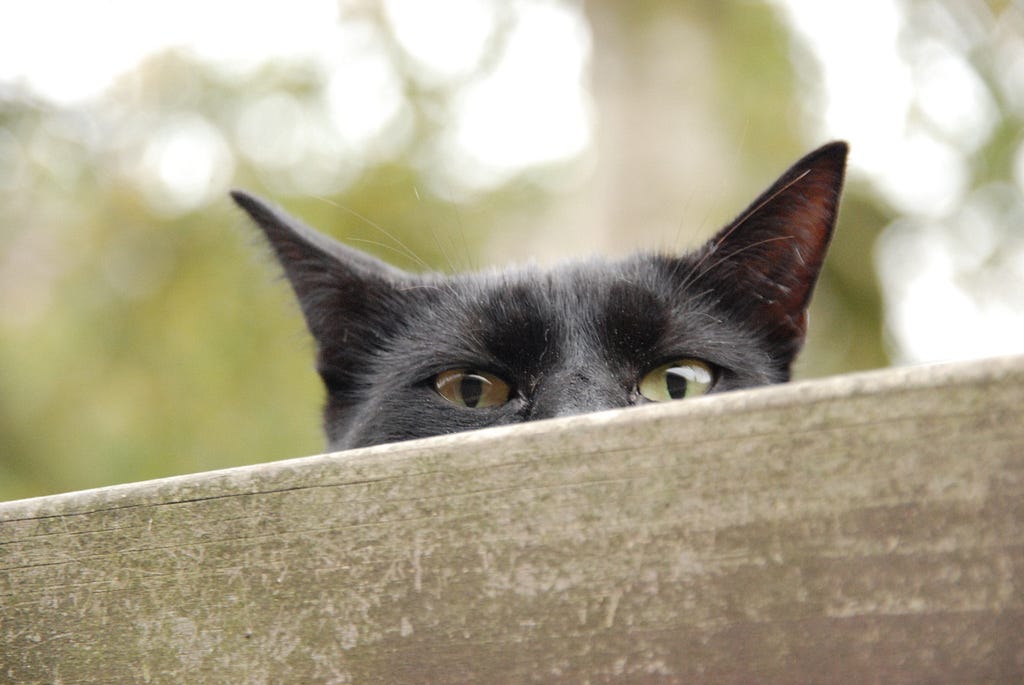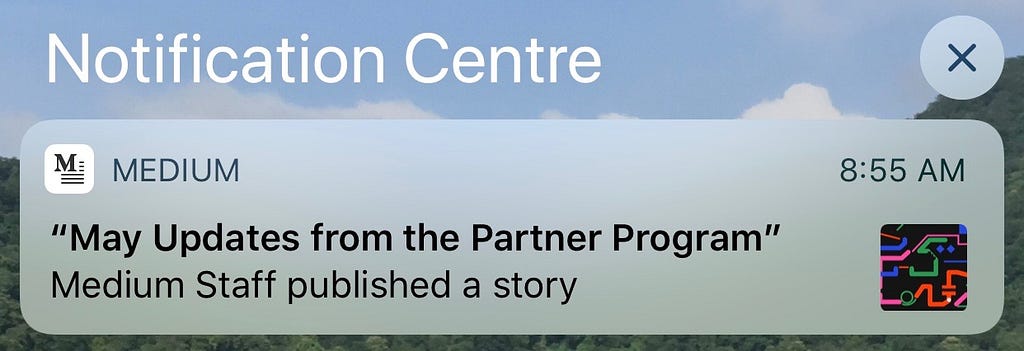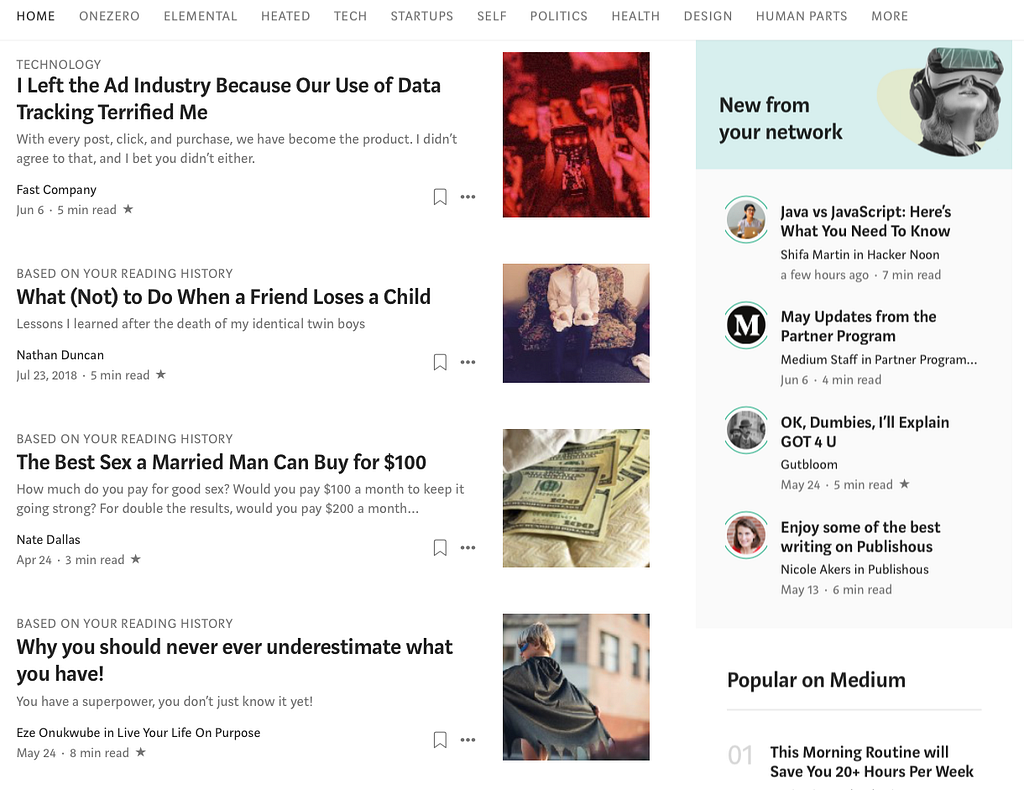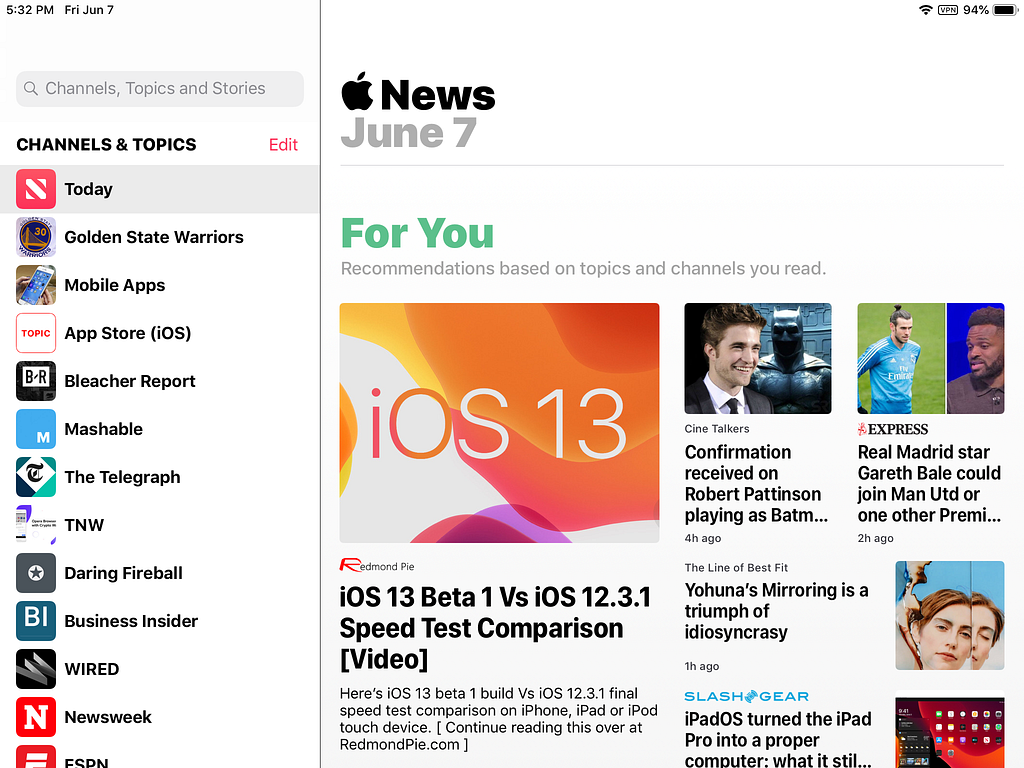Latest news about Bitcoin and all cryptocurrencies. Your daily crypto news habit.
 When the wall built with your help, is used against you (courtesy pxhere)
When the wall built with your help, is used against you (courtesy pxhere)
This post is about how my perspective is changing after a month of moving behind the Medium Paywall.
A few days ago, I received the below notification from Medium. This led to a dilemma, or maybe that should read trilemma. As a recent migrant to the wide world outside the Medium Paywall, I had just become aware that I was now allowed to read only three articles per month on Medium, after which I would be banished behind the paywall. So if I read the Medium post, does this mean I can read only two other articles during the rest of June?
Out of curiosity, I visited Medium’s home page to check what else was on the menu. The ‘May Updates…’ article was there. But if I was asked to use up one of my three-post quota from all the posts on that particular page, that Medium post would definitely not be in my selection. And we are not even discussing the hundreds of stories elsewhere on Medium.
Sending such notifications to its non-paying writers reveals how much Medium is out of touch with reality. I mean why would any such writer want to waste one of their minuscule quota of three monthly posts, on listening to Medium blowing its own trumpet? (If this notification is turned on by default, then Medium needs to turn it off for non-members.)
So why am I not just paying the $5 fee and accessing all of Medium? Well, I actually did this for over two years because I liked the platform and wanted to support writers on it. But I stopped paying as a protest against Medium’s discriminatory and non-inclusive attitude towards member writers from the poorer parts of the world.
Why I quit my Medium membership
We don’t get paid for writing on Medium, despite paying the same $5 membership fee. And if we don’t pay the membership fee, we get to read only three articles a month. (To be fair, if you are a writer in a Medium publication, you have full access to all articles on that publication. But if you are an independent writer on Medium, then three articles is all you get, plus whatever appears in Medium’s Twitter feed).
It’s pretty messed up when a platform blocks access to the site to the very same writers who provide content for them. No two ways about this.
Pros and cons of paywalls
The case for paywalls is that writers and journalists invest time and effort to create their articles. It’s how they earn their living. If they are forced to give away their work for free, how are they supposed to survive?
Once upon a time, ads were the answer. But after the many ways, our data has been misused by the likes of Facebook, as well as the intrusive nature of ads, readers have begun to look at alternatives to ads. A paywall is one way to resolve this. As of now, quite a few publications are following NYT’s lead of setting up paywalls, but only time will say if they will be successful.
I wouldn’t bet on paywalls though, as it’s human nature to look for ways to avoid paying for stuff. Sure, I still pay for my newspaper in India, but it costs less than $2/month, as it’s highly subsidized. By whom? You guessed it, ads.
The argument against paywalls is the free internet has been responsible for much of the monumental changes during the last two decades, mainly because it facilitated the free flow of knowledge. Paywalls disrupt this flow and could kill the pace of progress. In fact, the academic world is one of the worst hit by paywalls, and the scale of it was quite a shocker for me.
Linked below is a documentary on the issue (the video dramatizes a paywall by stopping suddenly at the beginning with a paywall like announcement, and for a moment I thought it was a paid video!). I found the interviews interesting as the scholars are quite articulate, and you can see how their typical scholarly detachment is being rattled by the illogic of paywalls. Like how publicly funded research is not freely available to researchers, which leads to the authors of research papers missing the comments and interactions with other researchers, which in turn is the lifeblood of research. And how the ‘35–40% profit margin associated with the top academic publisher Elsevier is often greater than some of the most profitable tech companies like Apple, Facebook and Google.’ (courtesy: Vimeo)
Medium’s paywall is a ripoff
I didn’t know much about paywalls, but what’s going on at Medium is a perversion of it. I began writing on Medium in 2015, and went along with the flow, as Medium evolved from an ad-free platform to an ad-based model, an eventually into a paywall publication. I assumed the powers-that-be at Medium would do the right thing. It was only after I quit the Medium Partner Program that I realized how unjust the system was.
Let me illustrate with a personal example. My short post on Medium, ‘The Phone hacker is coming’ was written to make my readers aware of cellphone hacking, and how to safeguard their phones. I didn’t get paid for writing it, and I was fine with that as long as my readers got to read the post for free.
However when Medium up its paywall, the whole thing became a farce. That article has had 27,000 views (and it’s just one of over 200 posts I have made on Medium). The way the paywall works, Medium gets paid by readers who wish to read my posts, while I don’t get a single penny. And there are tons of writers on Medium like me, who post thousands of articles on Medium and earn nothing.
To add insult to injury, my post is now not even open to the public. If that’s not a ripoff, I don’t know what is.
Yes, there is a thing called the Medium Partner Program, which I was a part of for two long years. I quit last month after I realized it too was just another farce. The Medium Partner Program only pays writers if they are lucky enough to be living in one of 23 countries, which somewhat unsurprisingly, are the rich and developed nations.
Being inclusive isn’t where Medium is at.
Out of the frying pan into the fire?
The current trend is to see paywalls as fair, and ads as evil. Personally, I dislike ads with a passion and make it my mission to try out every ad blocker I come across. But after my current experience, I’m wondering if switching from an ad model to a paywall model was a ‘frying pan into fire’ scenario. For instance, I don’t mind the ads on Duck Duck Go. They don’t collect data on users but instead display ads based solely on the keywords searched for by a user. If that’s true, it’s certainly not intrusive or creepy. I’m okay with it as they provide a search service and deserve to make some return for their pains. The danger is in ads controlling content. But if Duck Duck Go is able to retain its independence with their ad model, I don’t see why Medium shouldn’t.
What do Medium’s writers think?
If Medium had bothered to check with its writers, I think a majority would rather not be a part of a non-inclusive payment system that discriminates against writers outside a charmed circle of 23 richer countries, and would prefer to endure a level of non-intrusive advertising to avoid that scenario. What’s more, I’m certain most writers would prefer ads, to blocking access to writers who contribute content to Medium. However, we will never know what Medium’s writers think, because Medium never did ask its community.
Why does Medium act like this?
I can suggest three possibilities based on my discussion with Dmitri Zaitsev.
Greed: Duck Duck Go kind of ads will generate millions, but Medium wants billions and believes a paywall will help them strike gold.
Incompetence: Medium may be suffering from a case of false confidence in itself. But the reality is Medium is incompetent and unable to judge the benefits of advertising against paywalls. Why else would they employ Stripe who, even after two and half years, hasn’t yet figured out how to pay me in India, while having no issue in collecting my membership fees since forever?
Arrogance: Medium thinks it’s bigger than its writers and doesn’t give two hoots about their opinion. Forget about being fair, inclusive and non-discriminatory to all writers on the platform, Medium’s attitude seems to be an arrogant ‘take it or leave it.’
Ignorance: Medium seems to be under the impression that its writers need them, more than they need their writers. I haven’t been on Medium much, ever since I went behind the paywall, and I don’t feel like I’m missing much. In fact, I have already begun moving away from Medium, often tagging along behind publications I follow, who leave Medium.
How good is Medium as a content provider?
I admit I miss quite a few of the writers on Medium, mainly because of their idiosyncratic personalities that shine in the comments sections. But as far as actual content goes, I can manage just fine without Medium as there are dozens of free news aggregators out there. Even the limited version of Apple’s News app in India gives a choice of articles from a collection of publications though not all are available in India (see below). Mix it up with Flipboard, and a couple of other news apps, and I see no real need for Medium as far as reading content goes.
Medium provides a great service by hosting content for writers. I like the simple design and ease of use of the platform and the way it allows writers to interact with readers. I have yet to see that elsewhere (I haven’t looked too hard) and that may be why I’m still here.
Can anyone lure me away Medium?
I’m hoping things will change as more writers become aware of how non-inclusive the platform is. My feeling is that such an unbalanced system will topple eventually. I know of writers who have stopped writing because of the way the paywall denies access to readers, as well as writers who have left the platform because of its non-inclusive payment system.
So what is actually going on? Is this a case of Medium making hay while the sun shines?
In the meanwhile, if a competitor to Medium can duplicate the simple design and ease of use of the platform, and build in a non-intrusive ad system to generate income for itself and its writers, I would be gone in a flash.
Is Medium exploiting writers?
Medium’s payment system doesn’t really generate much money for writers. Since most writers on Medium are amateurs, they won’t make more than a few dollars (if they are lucky enough to be paid by Medium). So money is not really the issue here. But after two years of paying my membership fee, I had to face the reality that Medium has no intention of being inclusive.
The thing is writers as a tribe tend to be shy and quiet and so are easy to exploit. I believe Medium is taking advantage of this and avoiding including writers from poorer parts of the world in the Medium Partner Program. If we accept this injustice quietly, we become part of the problem. My way of protesting was to cancel my Medium membership and make readers aware of what’s going on, by writing periodic posts like this one.
Please comment, clap, share, forward, and even if possible, post your own stories on this subject. The more we do that, the harder it will be for Medium to bury its head in the sand and pretend this issue doesn’t exist.
The Paywall Paradox of Medium was originally published in Hacker Noon on Medium, where people are continuing the conversation by highlighting and responding to this story.
Disclaimer
The views and opinions expressed in this article are solely those of the authors and do not reflect the views of Bitcoin Insider. Every investment and trading move involves risk - this is especially true for cryptocurrencies given their volatility. We strongly advise our readers to conduct their own research when making a decision.



